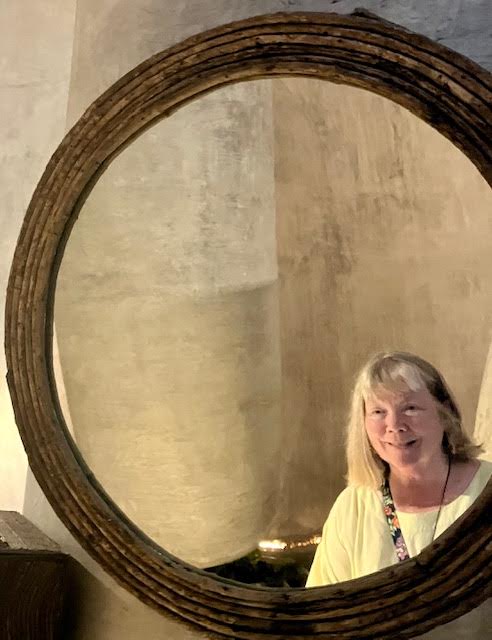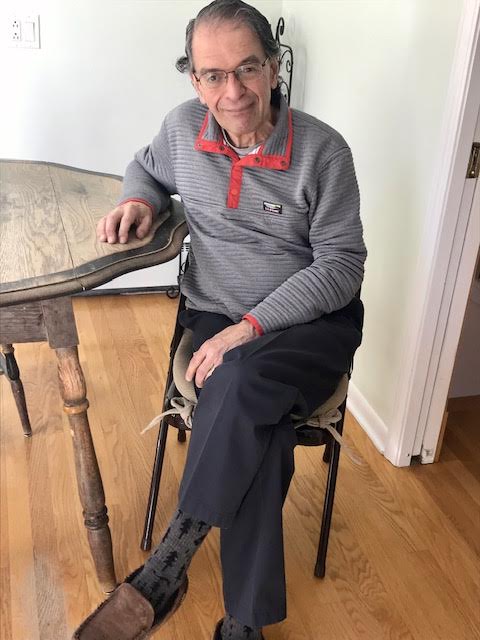
How does one begin to discuss the complexity of life with dementia?
Let’s start by acknowledging the trauma involved.
The trauma of the diagnosis, the trauma of the multiple losses it engenders, the trauma of the fear surrounding the diagnosis, the trauma of the isolation so many coping with the disease find themselves in, the trauma of lost relationships, lives, shared memories, and futures, the trauma of the years-long nature of the disease, the trauma of lost opportunity, productivity, hopes, and dreams, and, of course, the trauma of the financial blows engendered by the disease.
And need it be said that all these losses and traumas apply to both caregiver and patient?
And then there is the trauma of putting a loved one into the care of a facility. By the time a caregiver reaches this step, assuming that they do, s/he is likely tapped out, burnt out, profoundly tired, overwhelmed, and simply beyond his or her capacity.
But, however much one longs for, and expects, respite in the aftermath of this step, what happens next is, in addition to respite, more adjustment, new losses, and new responsibilities.
A caregiver at this point becomes a widow or widower who is still married, in contract with an expensive facility but still holding final say in decisions of import, saddled with the challenges and frustrations and possible freedoms of being responsible for each and every facet of both home life and the institutional life of one’s loved one.
And very possibly experiencing, in addition to the grief, fatigue, and anger that plague a caregiver, guilt as well.
Dementia’s road is a long one. But, I think I can assert, for most it is not convoluted by twists and turns. The trajectory of most dementias appears to have been, as this point, well mapped and described. What we don’t seem to know nearly as much about is, no surprise, the whys and hows behind dementias, the causation behind dementias.
The three big emotions (described in earlier posts) in my now five year plus experience with my husband’s Alzheimer’s Disease–grief, fatigue, and anger–repeat and repeat for me, and I believe for most, throughout the disease’s long course.
What changes is the skill and facility with which one can predict, navigate, and ride the waves of these emotions.
The path to peace lies in acceptance of the reality of one’s own changed life, the life of one’s loved one and family, and, eventually, a return to self.
But acceptance and a return to self is a process, something not achieved quickly or readily, a development that arises within after serious, and often long in coming, internal change.
I use both external tools (walking, journaling, time spent with trusted others, support groups), and internal tools (my life-saving “six practices”, which I have posted on, therapy, and meditation).
I’ve made an informed choice to not utilize, for now, antidepressants or anti-anxiety medications (although I respect the choices that others have made to use them).
The gold lies, for me, in what I call my internal practices, and I have to work them daily or trouble brews for me.
Some friends and family “get it”, and seem to understand, either intuitively or through their own experiences, how they can support a caregiver. Others, too many, do not.
This is what you should do (as addressed in my previous post) if you want to support someone going through trauma:
–Inquire
–Listen
—Listen more
–Ask how you might help
–Show up
Remember that caregivers are both caring for someone who is struggling with profound loss and trauma, and are, themselves, struggling with profound loss and trauma.
We are tough, resilient, and always learning and adapting. But we are also tired, profoundly sad, and vulnerable.
–Do not presume to know (ask)
–Don’t instruct or advise (listen)
–Don’t suggest an activity or a book, even if well-intentioned. The person you are addressing might already be doing said activity, or not have the energy for it, or not have the energy to read, or might well be able to write the book him or herself, if time allowed!
–Finally, do not abandon or isolate the caregiver or the patient (just show up).
So much of the fear and confusion surrounding dementia could be, I believe, prevented if people took the time to actually see, hear, and talk with friends, neighbors, and family members with dementia and thus experience, see, and hear what dementia is all about!
***Shared in love, in the hope that this might make this long road just a bit easier for someone.***






